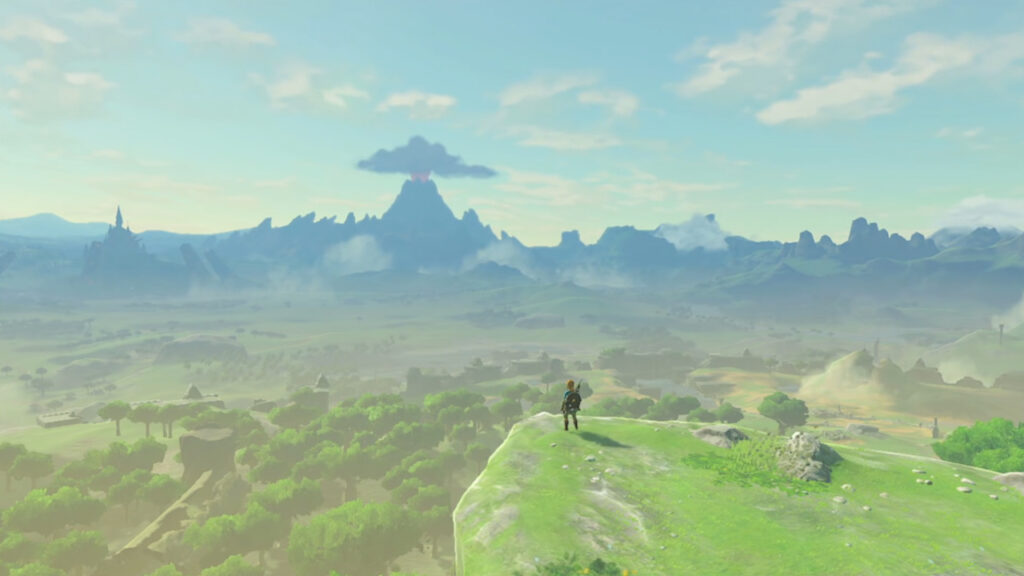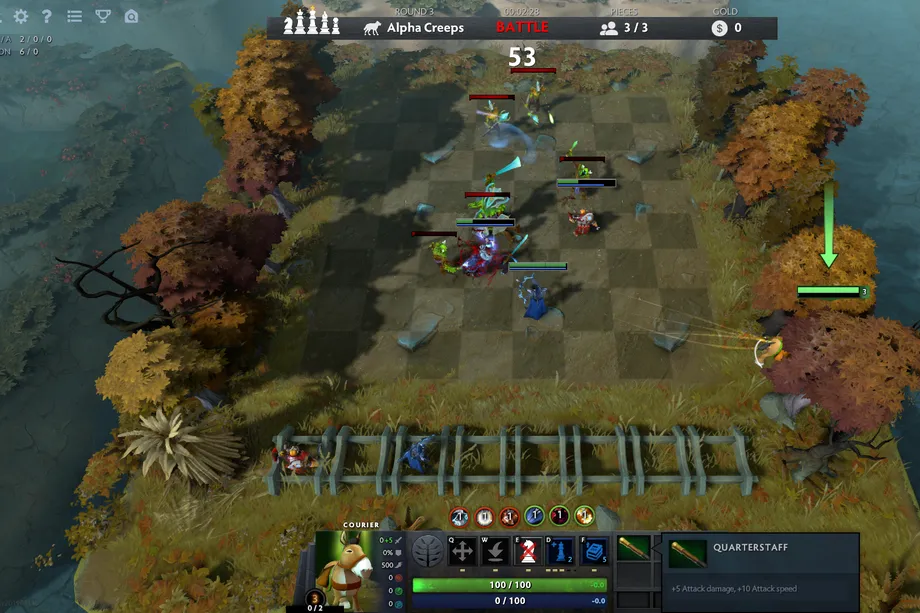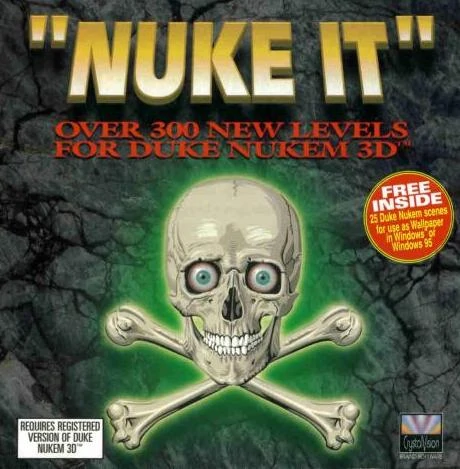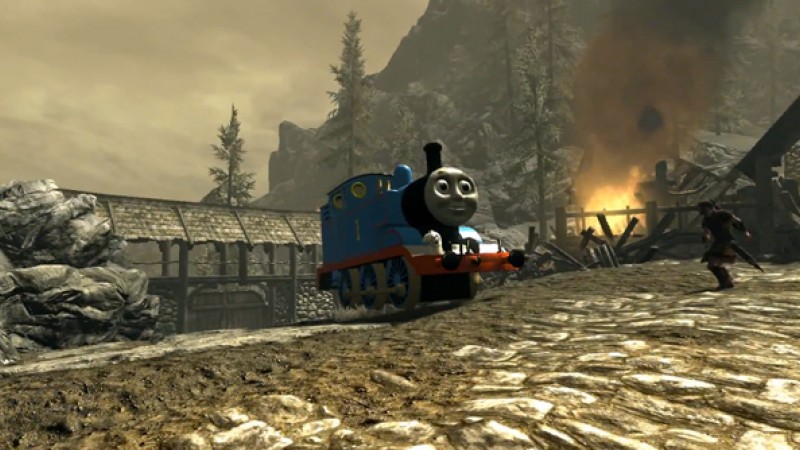In April of 2023, YouTuber and Twitch streamer PointCrow was issued copyright strikes against his channel by Nintendo. PointCrow makes “videos playing games, sometimes in strange ways.” On occasion, he “modifies the games [he plays] and explore[s] what happens when the game mechanics are a little different.” What drew Nintendo’s ire was the videos of a multiplayer mod for Breath of the Wild that he originally put a bounty of $10,000 for somebody to create for him. Nintendo took down multiple videos featuring this mod, as well as several others featuring Breath of the Wild – both modified and not – and other Nintendo games. Are video game mods illegal?

It’s important to remember that publisher guidelines like Nintendo’s Game Content Guidelines are not a grant of a license, but just that – a set of guidelines. If you follow them, Nintendo is less inclined to take your content down.
While PointCrow believes that his videos – as well as the mods themselves – fall under fair use, the actual legality of mods is not so clear. No license has been granted for them. In this article, we will discuss the legality of mods generally.
Modification of Video Games
Let’s start by defining what a mod or modding is. Modding is the modification of a game. Enthusiastic fans will dig into a game’s assets and code to create packages that can be added to the game to modify its behavior, called a mod. These could be as simple as adding cosmetic changes to the game, translating the game to new languages, or more complex like adding new behaviors, maps, modes, and functionality or even total conversions that rework every part of the game.
Some entire genres have been started as a result of mods, such as the MOBA genre that was born from DOTA, a mod of Warcraft 3 as well as Auto Chess which was itself born from a mod of DOTA creating something of a modception. While some developers take a very hands-off approach or even encourage a modding scene by making mod tools available to users, others choose to simply look the other way or even take action to prevent mods from being created. The disposition of different publishers varies greatly, so it’s important to understand where mods stand in the legal system.

It is important to establish as well that we are talking purely about what the law is, not what is ethical. While researching for this article, I came across a lot of bad answers to the question “is modding legal?” that were really answering whether it’s ethical.
There are many people who believe that as long as you’re playing an offline game you’re perfectly allowed to modify a game, so long as you’re not affecting other players and modders aren’t profiting off of the sale of mods.
While this is a nice guideline for what may be not cheating (and therefore breaching the terms of service or code of conduct of the game being modded, as well as just ruining the game for other people) it’s not a rule on what’s legal, only one view on what is ethical.
Legally speaking, whether or not the game is online or off doesn’t matter. It also doesn’t matter whether your modding affects other players, though there have also been lawsuits against cheaters. What matters to the law is intellectual property and the rights of its owners.
Micro Star vs FormGen: Infringing IP Rights and Chewing Bubblegum
Modding a game is a question of intellectual property rights. The publisher of a game holds the IP rights over the game. As such, they have the exclusive right to create derivative works of the game. This is called the adaptation right. This means that anybody else creating a derivative work without permission is infringing on the IP rights of the owner. If a mod is a derivative work, then it is infringement.
The controlling case over this is Micro Star v. FormGen Inc.

In this case, Micro Star was in a dispute with FormGen over the infringement of their game Duke Nukem 3D. Micro Star took 300 user-created levels for the game and packaged them on a CD which it then sold commercially. This was, as we know it today, a mod. The court decided that “A copyright owner holds the right to create sequels, and the stories told in the N/I MAP files (the files that make up the map pack in the mod) are surely sequels, telling new (though somewhat repetitive) tales of Duke’s fabulous adventures.” Even though Micro Star’s map packs did not incorporate any of the game’s original code or other copyrighted elements from Duke Nukem 3D and only added map files that moved around existing elements to create new maps, this still constituted a derivative work.
Although this case was decided at a very different time in the gaming industry, it remains the controlling case on modding. Notice that the court did not make a distinction based on the fact that the modded maps were being sold commercially, nor based on the fact that FormGen had made map-making tools available, or even that the game was primarily offline or online. It didn’t even make a distinction on the fact that a purchased copy of Duke Nukem 3D was required in order to use the map pack. The court simply ruled that these mods were a derivative work, and therefore infringing on FormGen’s IP rights. Therefore, FormGen was in its rights to enforce against Micro Star.
The law views creating a mod of an existing work like any other infringement, so the IP holder has the ability to enforce their rights against an infringer. The law treats modding no different from piracy it’s all infringement of intellectual property rights. The ruling in Micro Star doesn’t make it clear that any qualification for a mod as fair use, so until such a case changes this Micro Star remains the controlling law.
Modding is Infringement, but it is up to the IP Owner to Enforce
If modding is infringement of an IP owner’s rights, why do we still see modding? The answer is that similar to fan games, it is up to the individual IP owner to enforce their rights against infringement.
Oftentimes they don’t for various reasons. As such, you can still find mods distributed both officially and unofficially in various places, even as part of official storefronts on Steam through the Steam Workshop. It can often be beneficial for developers to have mods for their games, such as with Arma II which saw a huge increase in sales long after its launch due to the mod DayZ.
Some Developers Embrace or Ignore Mods
While some developers simply choose to look the other way when it comes to mods, others actively embrace and court a modding scene, such as XCOM 2 developers Firaxis, who formed a partnership with modders of the first game to have some mods available at launch and beyond. Many developers give permission or tools to encourage modding.

Other developers choose not to take action against modders because what they stand to lose in bad publicity is greater than anything they would lose due to modding. This is especially the case for indie developers, who stand to lose relatively little to modding, and don’t have the resources to constantly go after modders. Modding is still infringement of the IP owner’s rights, but these IP owners choose not to enforce against infringement for various reasons.
Why Would a Developer be Opposed to Mods?
Even so, there are some reasons why an IP owner would choose to enforce their rights against modders.
There are also many concerns that a publisher may have when third-party IP rights get involved. For example, a Fallout 4 mod that incorporated trademarks owned by MLB was taken down at the request of the MLB. Likewise, Nintendo issued takedown requests for mods that incorporated their IP in Gary’s Mod. No publisher wants to get involved with third-party IP claims because of the creations of their community.
There can also be concerns over other content that was not intended to be a part of the game being associated with it through the use of mods, potentially causing confusion as to what is actually in the game when it is unmodded. This can cause concerns over reputational damage with mods.
A prime example of this is when a nude Chun-Li mod appeared at the Corner2Corner Street Fighter 6 tournament. Likely for this reason, a presenter from Capcom stated that “for the purposes of anti-cheat and anti-piracy, all mods are defined as cheats.”
Publishers may not want their product affiliated with what mods can open up, and it’s very hard to separate the good from the bad. Making good on the previous statement, Capcom has supposedly started adding the Enigma Protector, an anti-tamper DRM to its older games, and has even started taking down videos of Monster Hunter speedruns that take advantage of mods.
Beyond concerns over the actual content of mods, the act of modding itself often opens up security concerns with regard to proprietary technology and hardware and can reveal proprietary trade secrets about how the games are created, making it much easier for competitors to copy.
This is especially true for mods that add multiplayer components, such as the mods that PointCrow commissioned. They can also open the doors to other copyright protection circumvention that would lead to assets being extracted and used elsewhere. As we’ve seen when talking about emulators, Nintendo is no stranger to protecting its intellectual property with digital security. All of these things have the potential to weaken the IP rights of the owner under our current system.
While modding itself may not be the immediate threat, it has the potential to create many more problems, so some developers – especially larger ones that have all of their value tied up in their IP – will tend to be a bit more vigilant in policing than others.
However, at the end of the day, a rights holder doesn’t need to have a reason to enforce their rights against modders, they can just do so simply because they own the intellectual property.
While Modding is Legally Infringement, it’s Likely Not Going Away
While the video game industry has been slowly shifting towards being more accepting and even encouraging towards mods, the law has not been so kind and has been shifting in the opposite direction in favor of strict protection of intellectual property rights. As with anything else created with someone else’s intellectual property such as video content, modding is fully at the mercy of the rights holders.
It’s not the case that Nintendo is selectively and arbitrarily enforcing its rights against PointCrow, but that the default rule is full enforcement and lawsuits, and choosing not to enforce is the exception. This is what the law currently is, even if it’s not necessarily how it always should be.
If an IP owner decides to enforce against infringement – modding included – they have the right to do so. If an IP holder decides not to enforce and encourage a modding scene, that’s their decision to do so as well.
